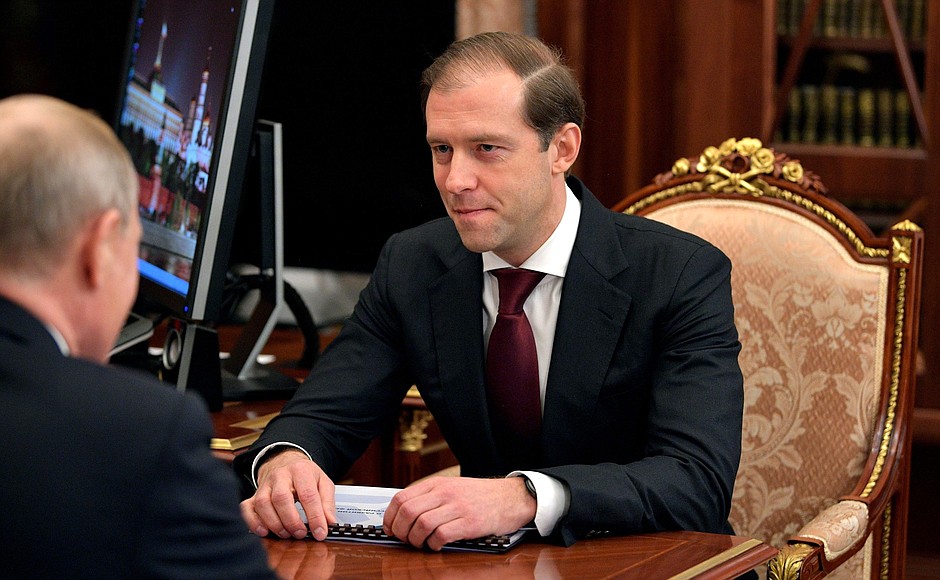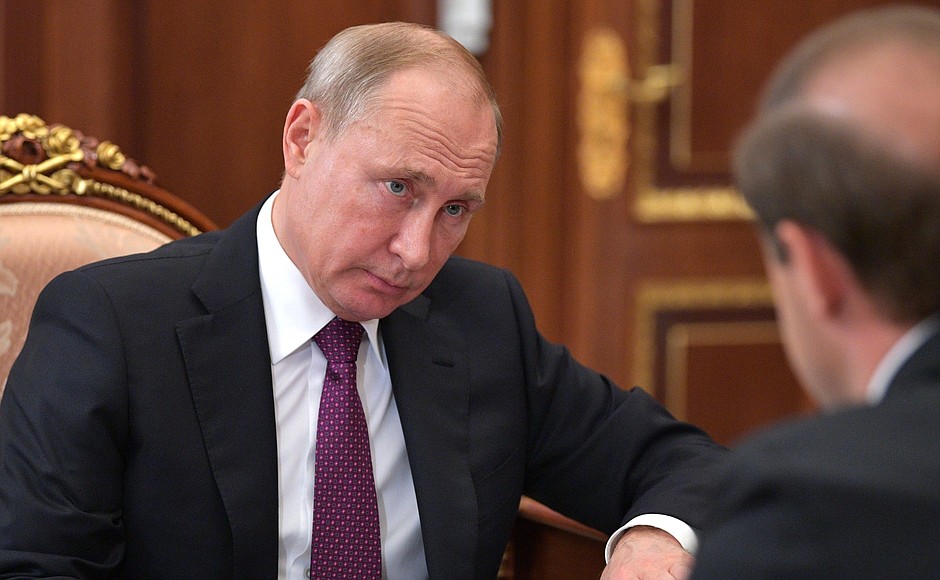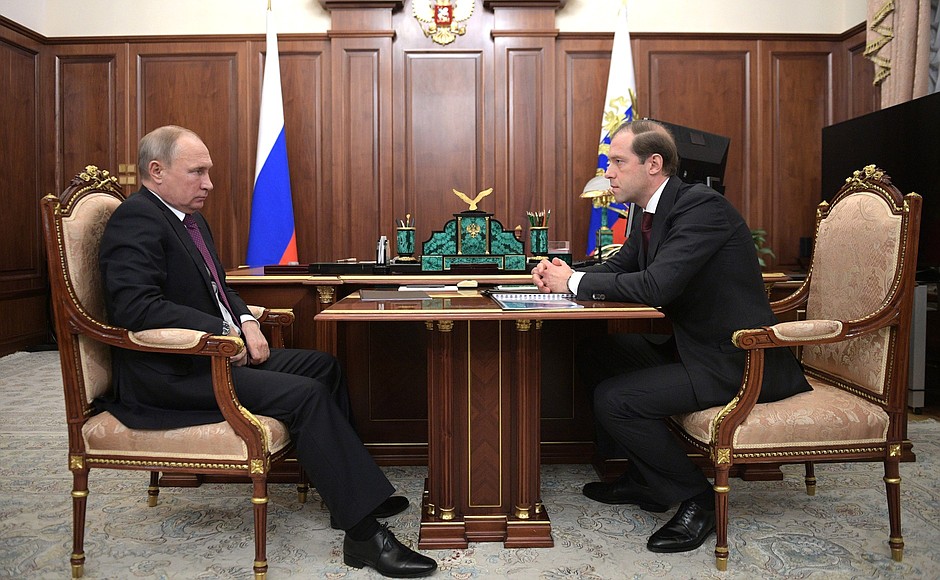President of Russia Vladimir Putin: Mr Manturov, I know that you intended to report on trade, the second aspect in the activities of your Ministry. What should we begin with?
Industry and Trade Minister Denis Manturov: If you allow me, we have prepared some presentations for better clarity to accompany this report on this essential sector of the economy which currently accounts for 15 percent of GDP, or almost 10 percent of all budget revenue. As many as 14 million people work in trade.
As of today, trade increased by 2.7 percent, and retail chains accounted for one third of the overall trade.
Vladimir Putin: Probably even slightly more.
Denis Manturov: Yes, federal retail chains have been cushioning food price inflation which is attributable to the intense competition and their consumer focus. As of today, food price inflation stands at 1.9 percent.
Some believe that retail chains generate excess profits, but let me give you some average numbers. Profitability is currently moderate, ranging between 4 and 10 percent, and in this presentation we show this trend. The average for the retail segment does not exceed 2.5 percent.
Vladimir Putin: At the same time, profitability in the agricultural segment is over 17 percent.
Denis Manturov: Thank goodness, this sector is developing. There is a lot of untapped potential as far as trade is concerned in Russia. In terms of retail space per 1,000 people Russia has about 800 square metres, while a number of European countries have almost double this indicator, which means that this sector has a lot of potential.
In order to tap all the possible reserves the Government has recently submitted to the State Duma a draft law on non-permanent facilities and retail delivery trade. It will allow treating these trade methods not as just non-permanent facilities, but also as mobile points of sale, while they used to be viewed only as retail kiosks. By the way, everything that you can see in this presentation is Russian made.

We see positive prospects for the next three years. Private investment in this sector is expected to be at about 220 billion rubles, and some 250,000 new jobs could be created. Most importantly, this would be an opportunity for agricultural producers to increase deliveries by about 4.5 million tonnes per year.
This would have a multiplier effect, since other sectors of the economy will also benefit from new orders. In particular, we expect about 50,000 vehicles to be ordered in the automobile sector, including both cars and lorries.
Our next step as far as we can see would be to complete the drafting of a law to ease restrictions regarding markets. In fact, over the past decade the number of markets dropped six-fold from 6,500 to 1,000 markets and fairs nationwide. We believe this to be a promising segment for expanding trade, and as I have already pointed out it could benefit agricultural producers.
I cannot fail to mention online trade. This is a rapidly expanding segment. Over the past few years it has been growing at a rate of 10 percent per year, and it already exceeded one trillion rubles last year. Experts believe in its potential and calculate that it could triple over the next four years.
Apart from distribution chains, we have been paying a lot of attention to product quality. Thanks to the State Commission for Countering Illicit Trade in Manufactured Products that you have established, a legal framework was developed to this effect.
I can provide some examples: there was a 10 percent decline in the volume of counterfeited and illicit products in consumer goods manufacturing alone over the past three years, which means that some 375 billion rubles are no longer in the grey zone. Of course, this increases tax revenue.
Efforts to develop Roskachestvo (Russian System of Quality) have also helped reduce the number of poor-quality goods on the market. This independent institution studied 4,000 items over the past three years.
We resolved a number of serious problems. Specifically, we have almost reached a point when the frozen fish segment is almost infringement-free, while in the past it was not uncommon to see Pollock delivered instead of cod. Violations regarding school uniforms have been addressed as well.

More than 240 Russian products were issued a quality stamp, helping their makers increase production by up to 40 percent, statistics show. This tells us that Russians trust this label, so we will continue to move in this direction.
We intend to further promote transparency in retail by improving labelling. Fur products have been subject to mandatory labelling for two years now.
We are currently conducting a pilot project to label medicine, footwear and tobacco. The Government has approved a programme to introduce mandatory labelling for 12 product categories by 2020, and by 2024 we have plans to cover the entire consumer sector.
Vladimir Putin: What is your main partner in digital trade?
Denis Manturov: [Regarding digital labelling] – this is the Advanced Technology Development Centre, a company created in cooperation with Rostec.
We have already transferred the duty to label fur products to the centre, and the labelling of medicine will be transferred in the near future, as soon as it becomes mandatory.
Vladimir Putin: Very well.
<…>

